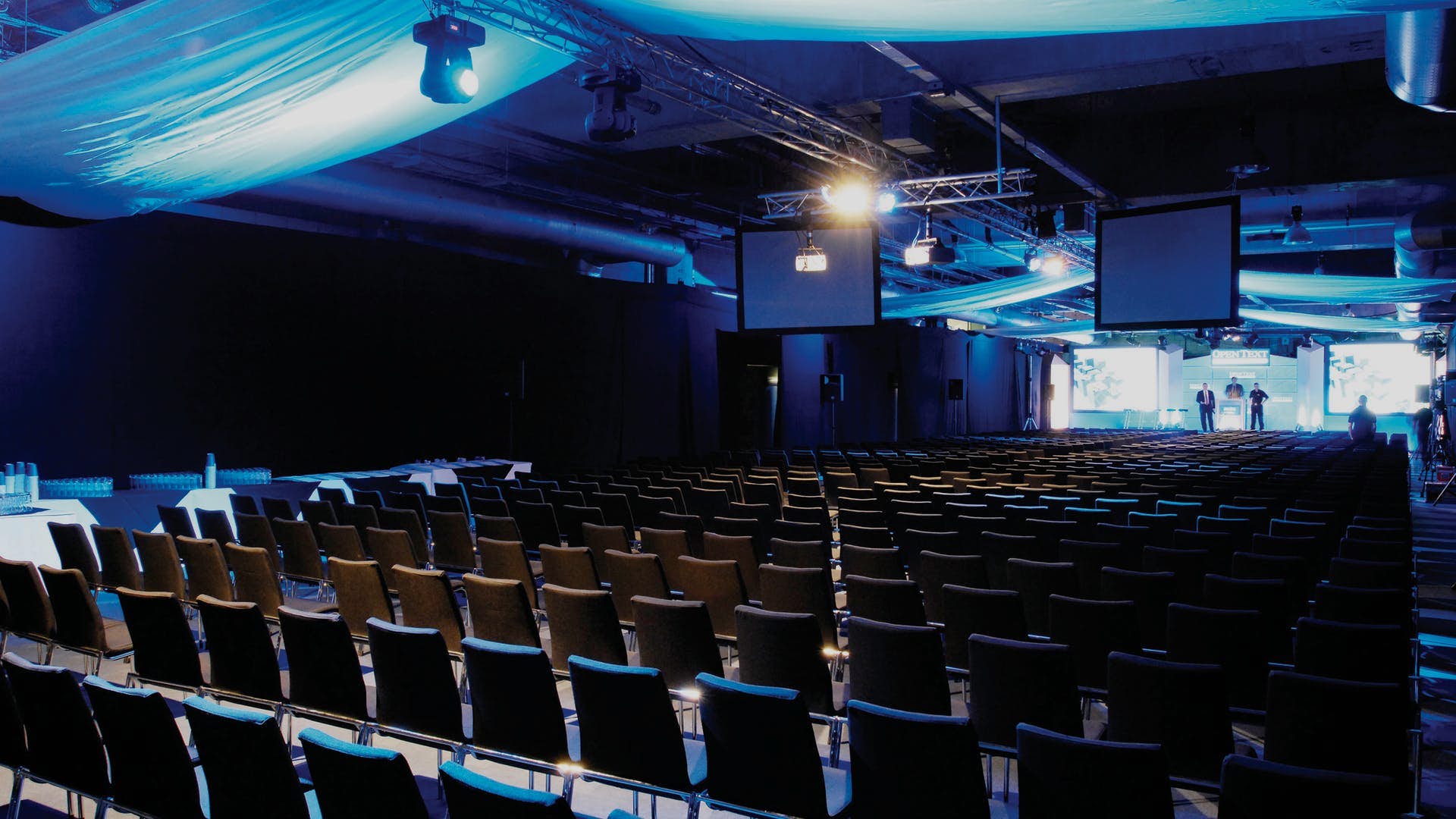On Wednesday 20th May, Hire Space hosted the first in a three part series of virtual events titled 'Business And Events In A Post-Pandemic World - Part 1'. The series aims to address the challenges and opportunities to be had when we emerge from the global pandemic and journey towards the future business & events landscape. This event was hosted in partnership with Swapcard and London Filmed.
The first session of the morning was titled 'The ‘New Normal’ Landscape Of Business & Event Strategy Beyond Coronavirus'. Discussing this was Carina Bauer, CEO of IMEX and Paul Black, Head of Business Events at London & Partners. Chetan Shah, CEO and Founder of micebook.com, moderated the session.
You can watch the video below, or read on for our key takeaways of the session.
Table of Contents
1. Are events the platform for re-engaging?
2. Back to basics
3. Do we need to upskill?
4. Q&A
5. The Speakers
6. Session Resources
Key Takeaways
Are events the platform for re-engaging?
Chetan notes that once this pandemic is over, there is going to be a huge need to bring furloughed teams back together and put corporate strategies in place. Events could be a great platform to re-engage these communities.
Carina then states that the 'legacy impact' of events is more broad in recent times, and that there is more focus now on how events can support in communities, cities and destinations as a whole as a huge driver of economic growth.
Despite events being on hold, Paul reassures us that we, as cities and destinations, haven't stopped communicating with one another, we've just had to find a different way to do provide experiences for our audiences. Whether events are live, virtual or hybrid, they are an essential platform to engage and deliver impact for audiences, as well as fostering sector growth, lending to job creation and simultaneously having a positive impact on communities around the world.

Back to basics
Historically, event planners have been constantly required to keep event or business objectives in mind whilst planning an event. As Paul notes here, there is already a specific matrix in place to judge the importance of many events, but naturally COVID-19 has made this more difficult.
Carina believes it is therefore crucial to go back to basics - evaluate the objectives of an event but also consider the risk factor that the pandemic may pose to live events, like the health risks for delegates traveling for an event. Paul proposes that there will be a lot more scrutiny on events, more pressure on ROI and more questions raised about how things are done, such as how we structure contracting. As the events industry is oriented around perception and event confidence, we as planners need to be prepared to put a lot of extra measures in place to restore this confidence. Hire Space recently conducted a survey on delegate confidence for events taking place in the future that adhere to safer meeting practices - check out the results here.
Carina finishes by advising us to go back to basics, look at the outset of what the ROI should be, then build a channel strategy that makes sense for the objectives. Looking at the impact that events have on the broader economy will be crucial for us as event planners to get industry and government backing.
Do we need to upskill?
Paul confirms that every link of the events chain will need to upskill. We will need to be looking at things such as biosecurity, budgeting, cyber security and a whole host of other elements that we may not have previously held as important. He notes that it all, again, comes back to objectives and brand messaging, and improving our skills so we can align our event strategy to that.
We have a great opportunity now to develop benchmarking tools to look at sustainability measures such as carbon footprint or food waste, as the new skills we all need to develop will require credible reporting and measurement of sustainability. Paul stresses that we all need to get involved in honing our skills, whether you're a venue, a supplier or an organiser.

Q&A
Will venues take into account social distancing (and possible reduction in attendee numbers) with their pricing?
Carina notes that, like it or not, there are associated costs with the new era of events. Whether this takes the form of installing thermal scanners, or even just increased cleaning, there are new costs to be noted. She appreciates that it's not a 'one size fits all' approach, but organisers, venues and destinations need to work together to create realistic costing packages for everyone.
Postponed events = high competition. Social distancing = reduced capacities - any thoughts on pricing for live events when they initially return?
Carina outlines that this is going to be challenging for both venues and organisers. If physical distancing remains in force for a protracted period then clearly venue capacity will decrease; but also event attendance and possibly revenue will be impacted too. In addition, venues have new health and safety requirements and possibly certification programmes to adhere to in order to be able to re-open – this might include adding thermal scanners and UV cleaning equipment, increasing cleaning staff and timetables etc. All of these have costs and it’s unrealistic for either venues or organisers to solely bear the brunt of all these increases.
Paul adds that clear social distancing and health and safety guidelines will be key to our initial recovery. Pricing per head is likely to increase; venues will need to cover their costs to operate safely with less numbers and with important new systems in place. So, there is inevitably going to be implication on price and how we do business as we initially emerge from this crises.
What are you most positive about at the moment?
The situation we’re dealing with at present is a health issue which naturally has deeply affected the industry in the immediate term, as well as confidence and sentiment. However, the underlying value of meeting face to face, or of live events has not changed and so Carina believes that once we can overcome the health issues and the health and safety around them, that there is no reason that we should not rebound strongly.
Paul states that the resilience and support the industry has shown during these past 2 months has been really inspirational across the country; seeing how suppliers and organisers have been supporting the government’s response to COVID-19, how the industry has come together more than ever before to support various initiatives; whether that’s learning, sharing ideas or new practice, trying to plan for the future. The industry is changing for sure but the creativity and diligence of this sector will help us recover in time, and business events will return to be a key part of our communications, and driver for economic growth and positive social change.
Do you think that technology will play an important role going into the future of events, or do you think people will value a live experience?
Technology has always played a strong and vibrant role in events. Over the past 20 years we have constantly been asked whether technology improvements will kill live events and what has actually happened is that planners have learnt how to use technology to improve and enhance their live events and experiences. Carina believes that the tough learning process that planners are going through now will bode really well in terms of the creative, hybrid experiences that they deliver once events are running again.
Paul adds that multi event platforms or hybrid events will certainly be more common looking ahead. But, before COVID-19, we always spoke about the experience economy; how we interact as humans and how brands best engage their clients, team members, industry partners. Live events and experiences will return and be a key part of how we communicate to our audiences, albeit with some changes and accelerated learnings from these challenging times.
The Speakers
Paul Black, Head of Business Events, London & Partners
Paul is currently Head of Business Events within the convention bureau team at London & Partners; London’s international trade, investment and promotion agency. He is responsible for business event sales from across the UK and international markets, and works on key citywide events such as London Tech Week. Paul has been in the industry for over 14 years having previously directed European sales for NYC & Company (New York City convention bureau) in the London office, as well as leading Hills Balfour MMGY’s MICE division working on behalf of city and national convention bureau.

Carina Bauer, CEO, IMEX
Carina was appointed CEO of the IMEX Group, following the expansion of the IMEX brand into America in 2009. In this role, Carina is responsible for all aspects of the business. Prior to this, she worked within the retail and catering business with GoodBean Coffee as Managing Director. Throughout her career, Carina has been an active member of the meetings industry. She was Chair of the Marketing Committee for MPI’s European Meetings & Events Conference, London (2008), has served on the Board of the MPI UK Chapter, the MPI International Multicultural Committee and on PCMA’s Global and Advocacy Taskforces.

Chetan Shah, CEO and Founder, Micebook
Chetan Shah is CEO & Founder of micebook - a digital start-up, helping planners discover destination content and global mice suppliers. It also facilitates closed network collaboration, on destination and supplier information, for event teams and Associations. Chetan brings extensive knowledge of procuring global event programmes and experience of the challenges and benefits of working in overseas destinations. This experience and knowledge of planner pain-points led to the creation of micebook.com.

Session Resources
We have compiled some on-demand content and resources below to support this session.
1. Organising Safer Events: Understanding Delegate Confidence As We Emerge From Lockdown (Infographic): Read More
2. How Hire Space Professional Can Help You Navigate The New Normal In Events (Blog): Read More
3. Live: Event Industry Coronavirus News & Guidance (Live News Feed): Read More
4. Register for Part 2 of Business & Events in a Post-Pandemic World: Online/Hybrid Experiences & Event Tech Skills (Registration): Read More
We hope you enjoyed reading our key takeaways from the first session of our digital event. Read the others here.
If you want to stay updated with the latest coronavirus news and industry responses, visit our coronavirus live updates platform.
If you're interested in holding a virtual event of your own, why not book a free consultation with our Virtual Event Experts below? We can help make your vision into a reality.
Author

Izzie Lachecki
Izzie brings a deep understanding of the events world to Hire Space, and keeps busy by writing lots of Hire Space and EventLAB content and managing the Hire Space social media presence.


